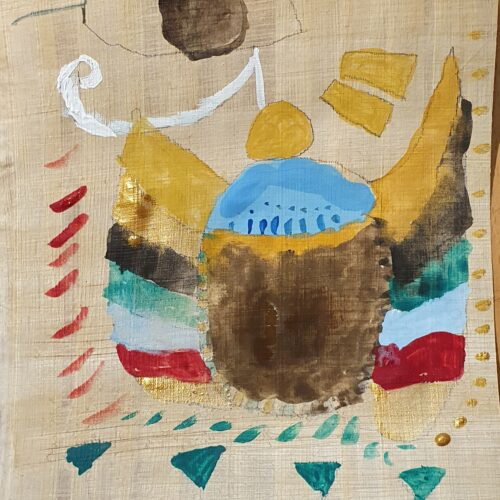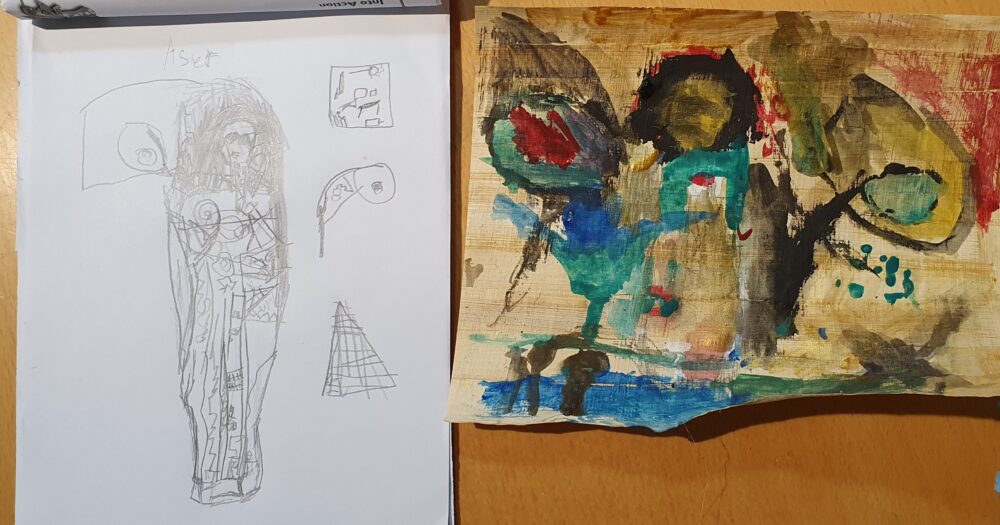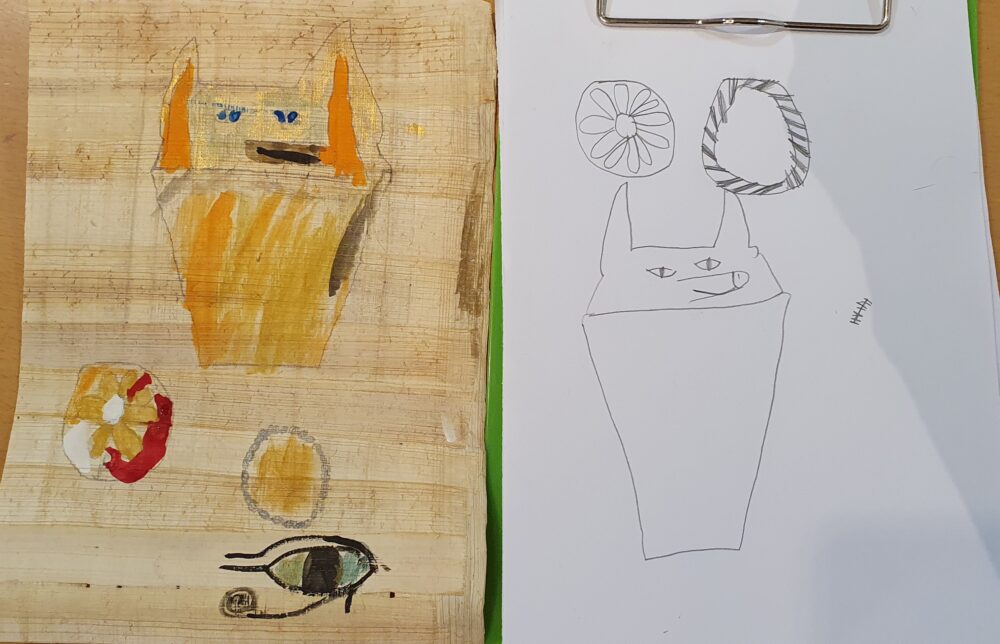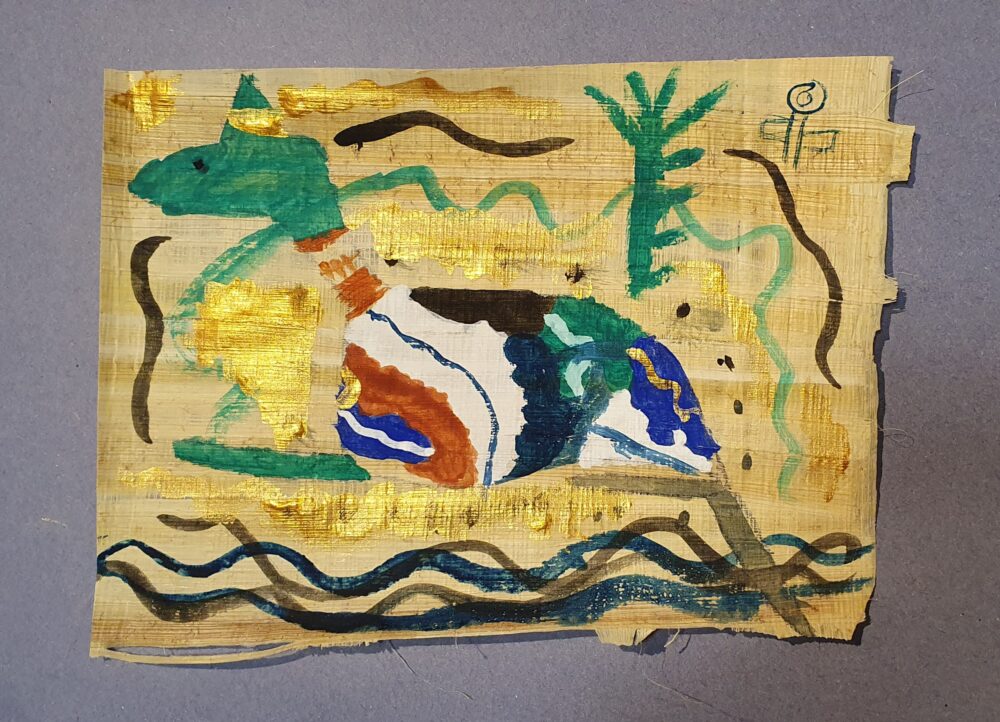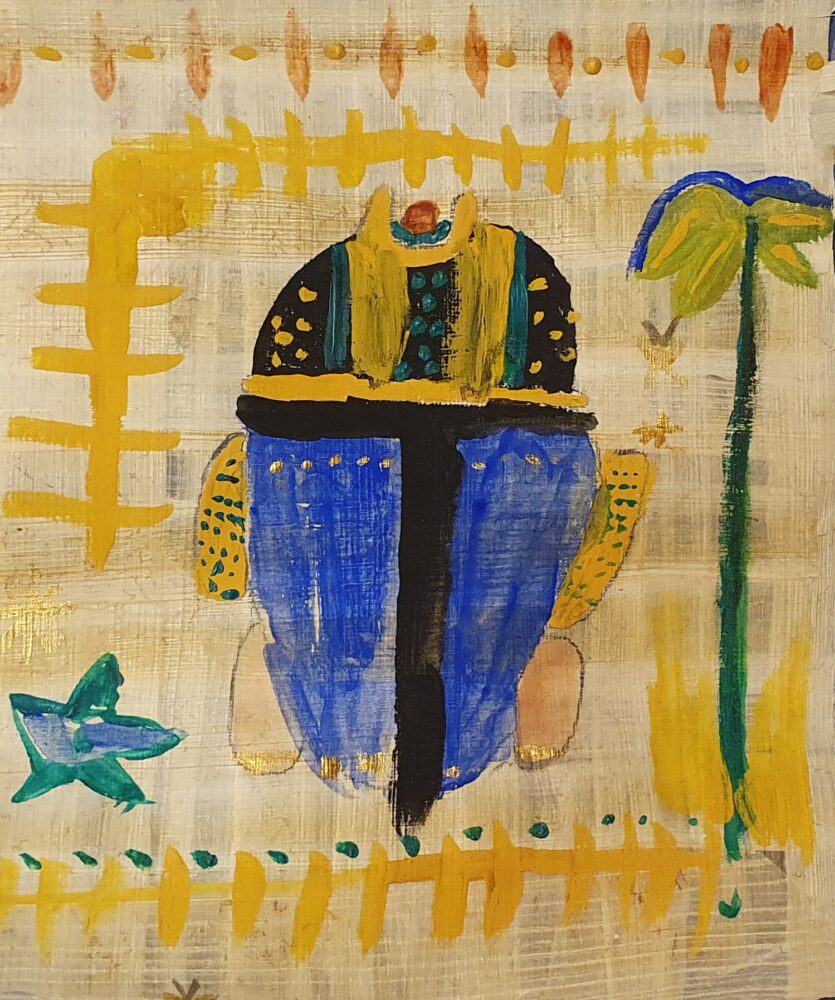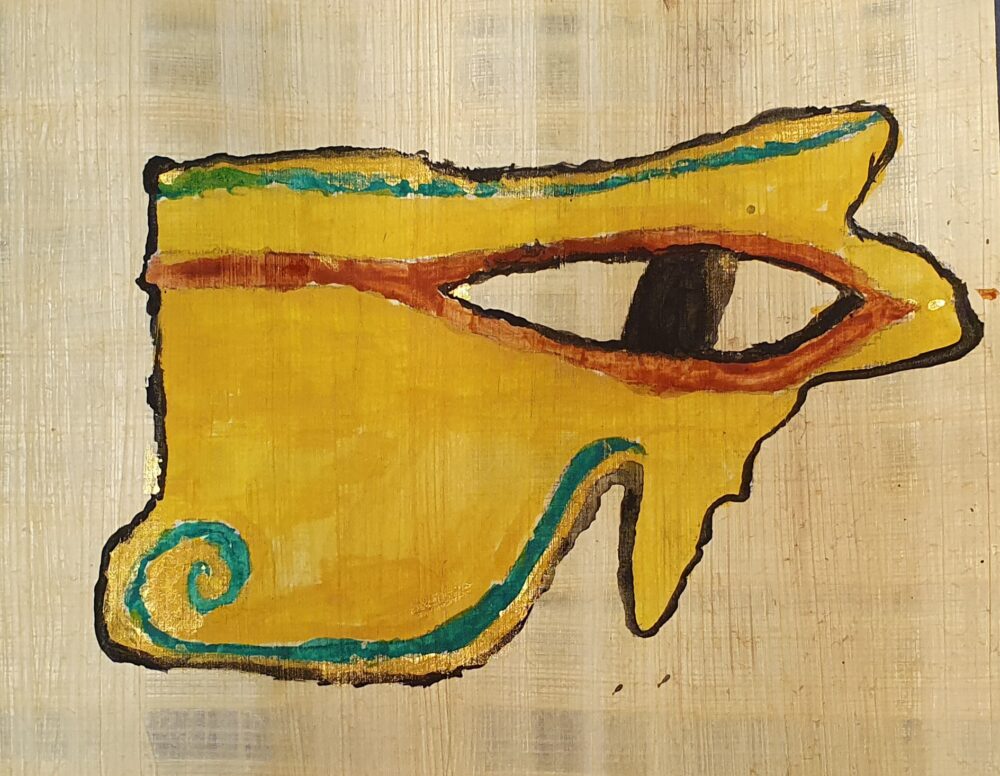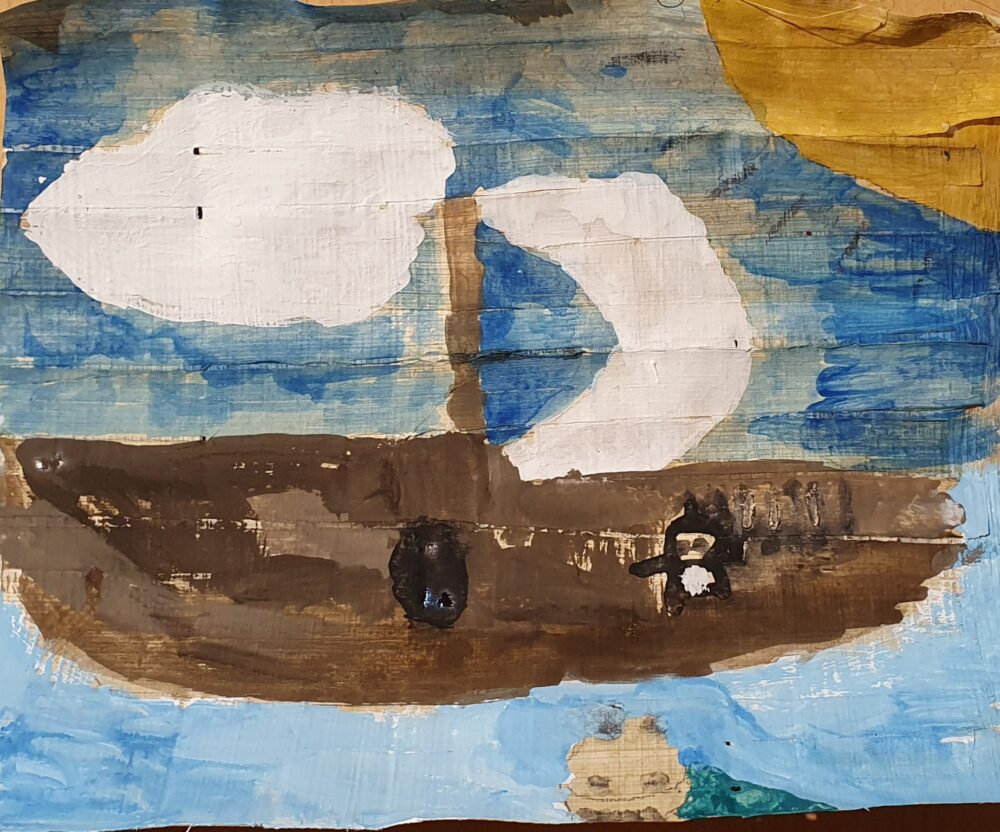How do you decipher an ancient Egyptian object? What can they tell us about what life was like for ancient Egyptian people?
Look closely at coffins and items from peoples' tombs, as we examine people in ancient Egypt: from everyday lives to kings and queens. We'll think carefully about why we study ancient Egypt and what we could do better.
This is available as a museum-educator led, on-site session. Sessions must be booked in advance.
Museum led on site session
- scheduled for 2 hours
- available for up to to two classes
- one hour is taught, one hour is self-led, the groups then swap
- self-led guidance will be available
- you can access to our lunch room to store belongings and eat lunch
- free
Studio session, optional on site extra
- An optional extra available on some Fridays throughout the term
- Sliding scale of charges based on your school type
- one hour session in our studio, supported by our studio assistants
- To develop children’s ability to look closely at objects
- To encourage children to make deductions based on what they observe
- To introduce children to the use of symbolism in ancient culture
- To enable children to feel connected to a range of different ancient Egyptians as real people
- To encourage children to communicate with sincerity and consideration for different cultures
- To reflect carefully on how we, in England and in museums, study ancient Egypt
Content of the museum led session:
- Consider why and how the artefacts from ancient Egypt came to be in the museum
- Read an object together
- Search the galleries for artefacts you might use in the afterlife
- Compare the lives of different people from different periods of ancient Egyptian history using information researchers have learned from their coffins
Content of the (optional) studio session:
- Learn about how papyrus was made and used in ancient Egypt
- Learn about how paints were made
- Using papyrus and gouache paint, students will make their own papyrus painting to take back to school
Watch our tours of the museum here, specifically designed for schools coming to visit.
Starter activities (Look Think Do) focussing on ancient Egyptian objects in the collection
Wepwawetemhat’s coffin fragment
The Book of the Dead of Ramose
Short videos and images for your class exploring ancient Egyptian objects in the collection
Read an object: Ramesses III’s coffin
Fact Sheets (pdfs with more information relating to our collection)
DIY: TEACHER NOTES
We have created some suggestions for the part of your visit where you do not have a museum educator. They are intended to be a springboard and are adaptable.
DIY – Ancient Egypt teacher notes
INTO ACTION: STUDENT ACTIVITIES
Our activities for students go well with the DIY teacher notes and are designed for students to use in the galleries. Please feel free to adapt them to your pupil’s needs.
Interested in our studio session? Your class will create some incredible works on papyrus after learning all about papyrus production in both ancient Egypt and Egypt now. Check out these works created by year 3 from Ashwell Primary School and Hampton Lakes Primary School!
Sessions are available on Fridays.
We are fully booked for Museum Educator Led visits for Spring 2026, limited self-led is available.
If you’d like to visit in Summer 2026, please complete our visit request form by Monday 23rd February. After this initial request period, we will review all submissions and respond to schools by Friday 6th March. This process ensures that as many schools as possible can experience our collections.
Bookings received after Monday 23rd February are still welcome, but availability may be limited.
Taught sessions will be offered Tuesday, Thursday & Friday.
Self-led visits are available Tuesday – Friday and will be scheduled around taught sessions.
Museum Educator Booking Request Form
We open bookings for each school term at the preceding half term. If you are interested in Autumn 2026 bookings, or teacher events, sign up to our teacher mailing list.
If you have any questions email education@fitzmuseum.cam.ac.uk.
Access and special educational needs
We are happy to discuss the content of the session and any other details that may be useful in helping your students make the most of their visit.
We have a bag of sensory and fidget toys available to borrow for sessions.
We can also print raised line drawings related to a session with a week or more’s notice, and may be able to arrange for a second museum teacher to attend the session who is trained in audio description.
We find it helpful to receive all feedback, but are especially keen to improve access to our sessions and offer. Please let us know if we can improve yours, or others’ sessions.
